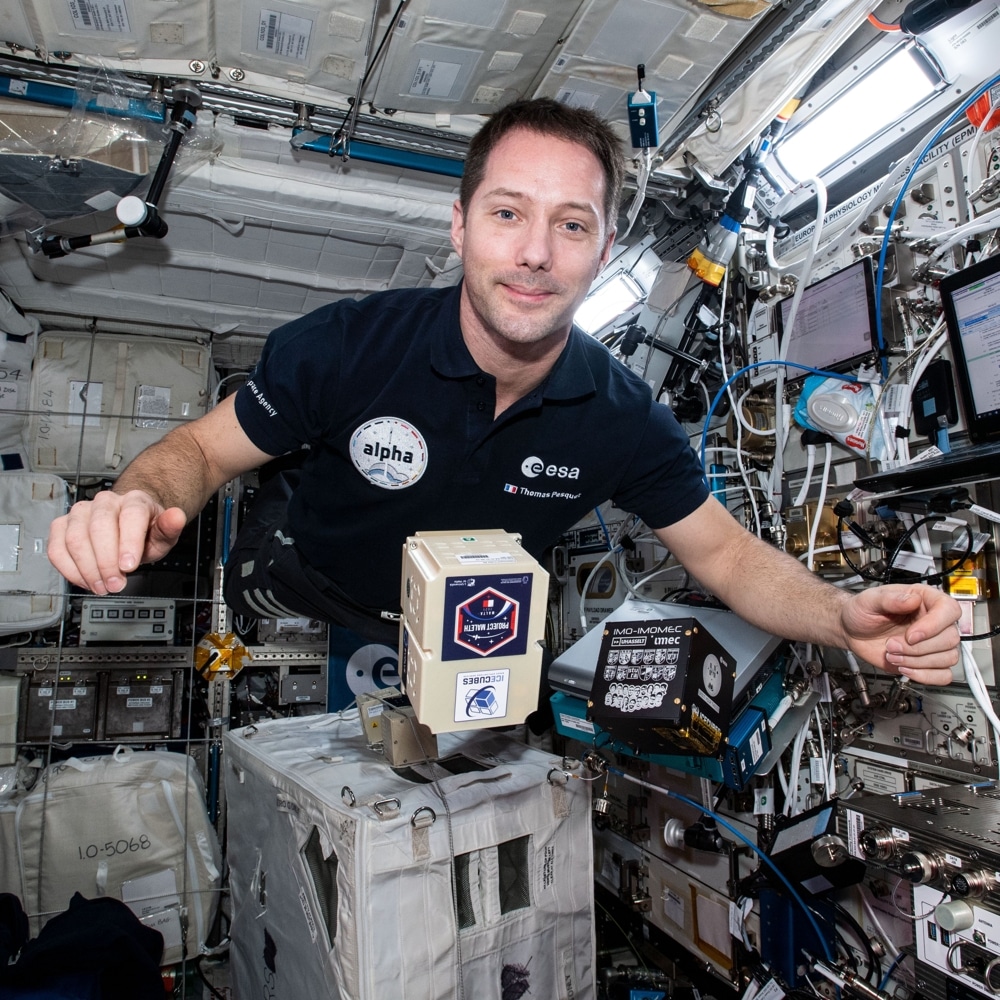Project Maleth
SpaceOMIX is a part of Project Maleth, a project whose research mainly focuses on obtaining results that can facilitate and improve precision-based medicine in treating DFUs more efficiently. Project Maleth is Space Omics Analysis of the Skin Microbiome of Diabetic Foot Ulcers or SpaceOMIX.
In Malta, no study has yet been performed on the microbiome of diabetic foot ulcers and coupled with space bioscience research this is the first of its kind, One of the aims of this study is to determine the full microbiome profile of DFUs in Malta. NGS results conducted on both ground-based and space-based samples are compared with those of conventional culture in order to determine the different types of bacteria that are actually present in infected ulcers, and their resistance to harsh environments. Moreover, by identifying all the bacteria present, one can determine if there are organisms that can be predictors of prognosis. The microbiome of healed ulcers can also be compared to those that didn’t heal, giving an indication of which bacteria may be associated with chronicity.
Together, the Ministry of Foreign and European Affairs of Malta with Space Applications Services NV/SA based in Belgium have successfully collaborated in creating a bold and innovative mission experiment that is being led by Joseph Borg. Joseph is an academic at the University of Malta and the current President of the Malta Association of Biomedical Scientists leading his research team in experimental haematology and molecular genetics.
Project Maleth intends to set the foundation for more technical collaborations between Maltese Institutions and organizations as well as International partners in the field. In doing so, this will lay the necessary groundwork for more cutting-edge and breakthrough science building on past success.
Access to the space environment, microgravity and high radiation create a unique opportunity to study various experimental biology experiments and fundamental biomedical science questions that in turn can have implications for real-world clinical problems. Two applications that Professor Borg and the team are working on jointly with colleagues Afshin Beheshti (Principal Investigator at the NASA Ames Research Centre) and Christopher Mason (Principal Investigator at the Weill Cornell Medicine, USA) include the study and effects of space on human blood and control of haemoglobin expression. Another project is the study of skin microbiomes of Type 2 Diabetes Mellitus patients. Skin wounds and ulcers in diabetic patients of Malta present a very challenging and significant medical problem with 10 new cases each week that require attention and medical care.
Aims & Objective
In the Ice Cubes #9 – Project Maleth (Space Omics Analysis of the Skin Microbiome of Diabetic Foot Ulcers, or SpaceOMIX) investigation, human skin microbiome samples from selected Type 2 Diabetic patients with diabetic foot ulcers resistant to treatment are studied as part of the first-ever Maltese space investigation on the International Space Station (ISS)—making it Malta’s first-ever mission to space. The microbiome is co-cultured on both ground-based (analogue) and space-based conditions to determine their adaptation and changes to the environment. All samples are analysed in a multi-omic manner using state-of-the-art molecular biology techniques, and all data is to be deposited as part of the NASA GeneLab database.
Nasa GeneLab is an open-access, collaborative analysis platform for space bioscience research. GeneLab aims to maximize the research resulting from experiments aboard the International Space Station by collecting and providing access to data from genomic, transcriptomic, proteomic, and metabolomics studies aboard ISS.
